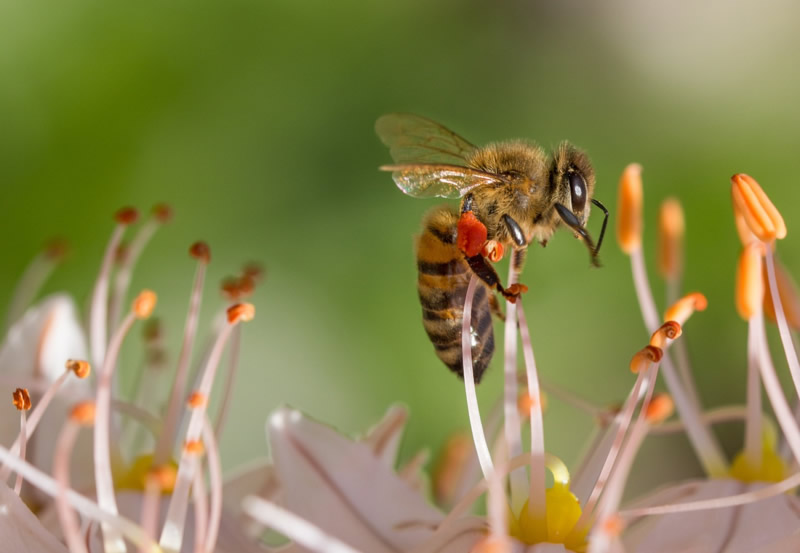
By Herb Frazier | Bee hives soon will give Magnolia Plantation and Gardens a new buzz to highlight the insect’s role as pollinators and the human threat to them.
Tori Johnson, Magnolia’s student and youth group coordinator, recently earned her wings as a certified beekeeper after completing a two-day introductory beekeeping course sponsored by the Charleston Area Beekeepers Association.
During the training at the Medical University of South Carolina, some 30 participants were instructed on beekeeping supplies, safety equipment, diseases, the types of bees and how to maintain a happy colony.
Bee colonies will be installed this month near the Magnolia campgrounds within an easy flight of the gardens in time for the springtime azalea blooms.
“First and foremost, the hives will be good for our gardens because the flowers will reap the benefits of the pollinators,” Johnson said. “Secondly, it is a great educational opportunity to inform the younger generation about the importance of pollination and to keep healthy bees.”
Magnolia’s desire to assist in supporting the continued existence of honey bees and other pollinators is of global concern. A recent report from the Intergovernmental Science-Policy Platform on Biodiversity and Ecosystem Services (IPBES) warns that pollinators are facing extinction.
The IPBES released its assessment after a two-year study of the threats facing pollinators — both vertebrates, such as birds and bats, and invertebrates, such as bees, butterflies and other insects. In some regions of the world, environmental impacts are pushing 40 percent of invertebrate pollinators to the brink of extinction. Butterflies and bees experience the highest risk. Among vertebrates, 16.5 percent of species are threatened by extinction worldwide.
In an interview with ThinkProgress, a political news blog released by the Center for American Progress, Simon Potts, co-chair of the IPBES report, said. “Without pollinators, many of us would no longer be able to enjoy coffee, chocolate and apples, among many other foods that are part of our daily lives.”

Tori Johnson
Johnson added, “If we lose our bees, our agricultural industry will crash. It is very serious, and I don’t think the general population understands how important pollinators are to our world.”
Johnson’s mission is two-fold: maintain a happy colony and use the colonies as a teaching tool for youth and scouting group. The first goal is more difficult than the second. If the bees are not happy, they could swarm, sending up to 60,000 bees on a hunt for a new home for their queen, she said. Johnson does not plan to take youth groups to the hives. Instead, she’ll show them removable sections of it and the honey. With a smile, she added, “We’d like to leave the bees alone.”
Magnolia has purchased Italian bees, the most common type, she said. “They are popular among beekeepers because they are less prone to disease, they produce quality honey and they are not aggressive.”
As a large-scale garden, Magnolia uses chemicals to control insects and other pests. Tom Johnson, Magnolia’s executive director, said Tori Johnson (no relation) will audit garden chemicals at Magnolia to ensure they are environmentally friendly. Magnolia plans to teach about the benefits of bees and the threats they face.
Veteran journalist Herb Frazier directs communicatons efforts at Magnolia Plantation and Gardens. Have a comment? Send to editor@charlestoncurrents.com



 We Can Do Better, South Carolina!
We Can Do Better, South Carolina!
























